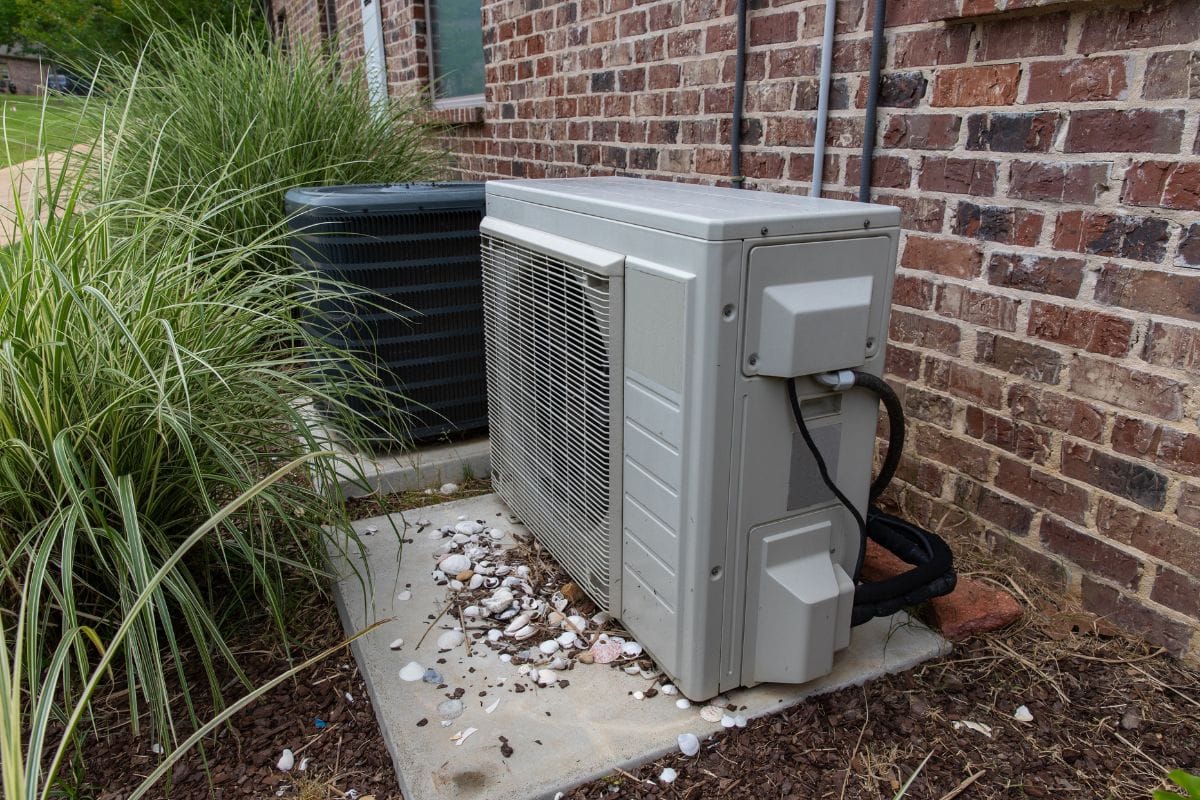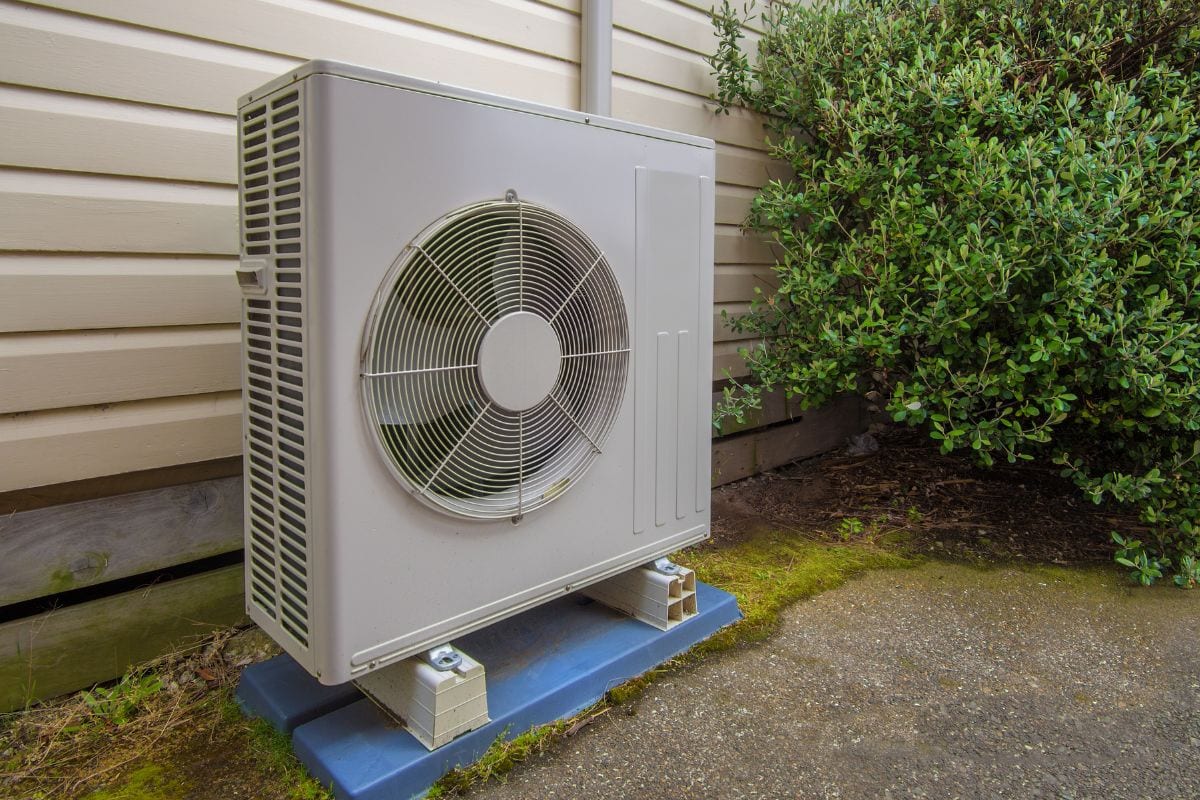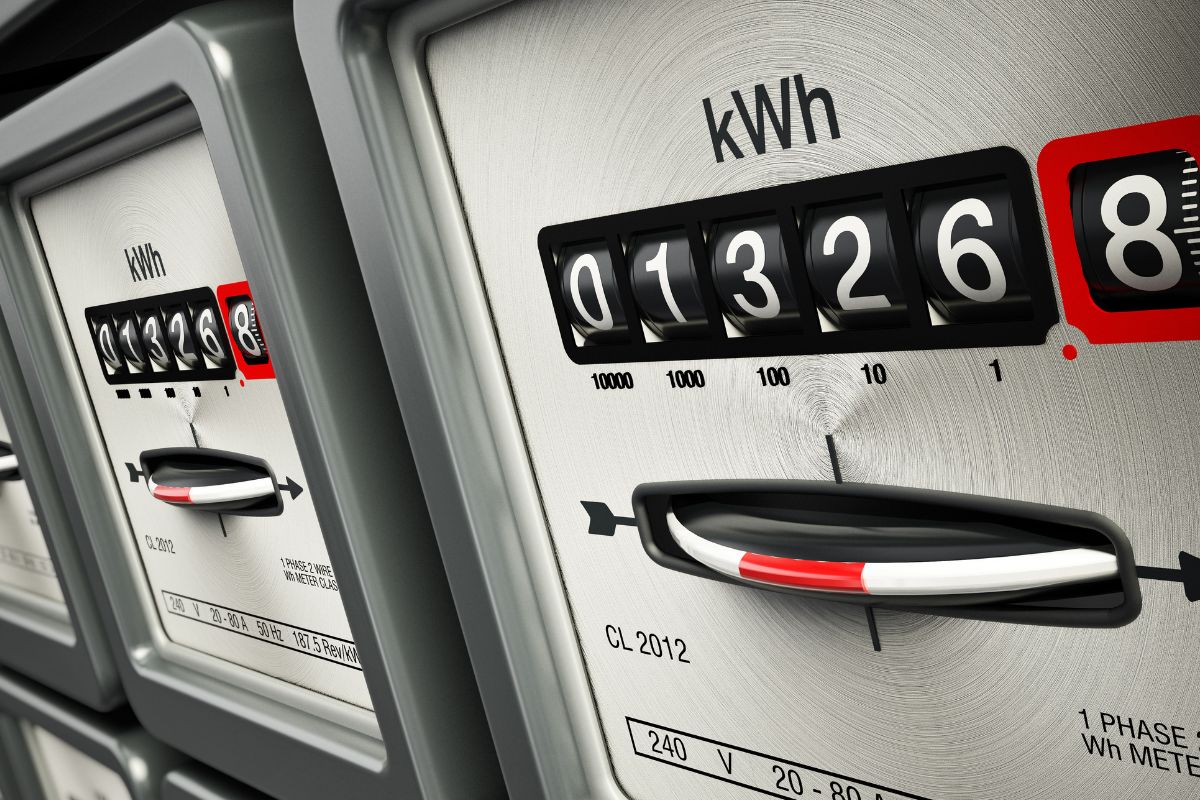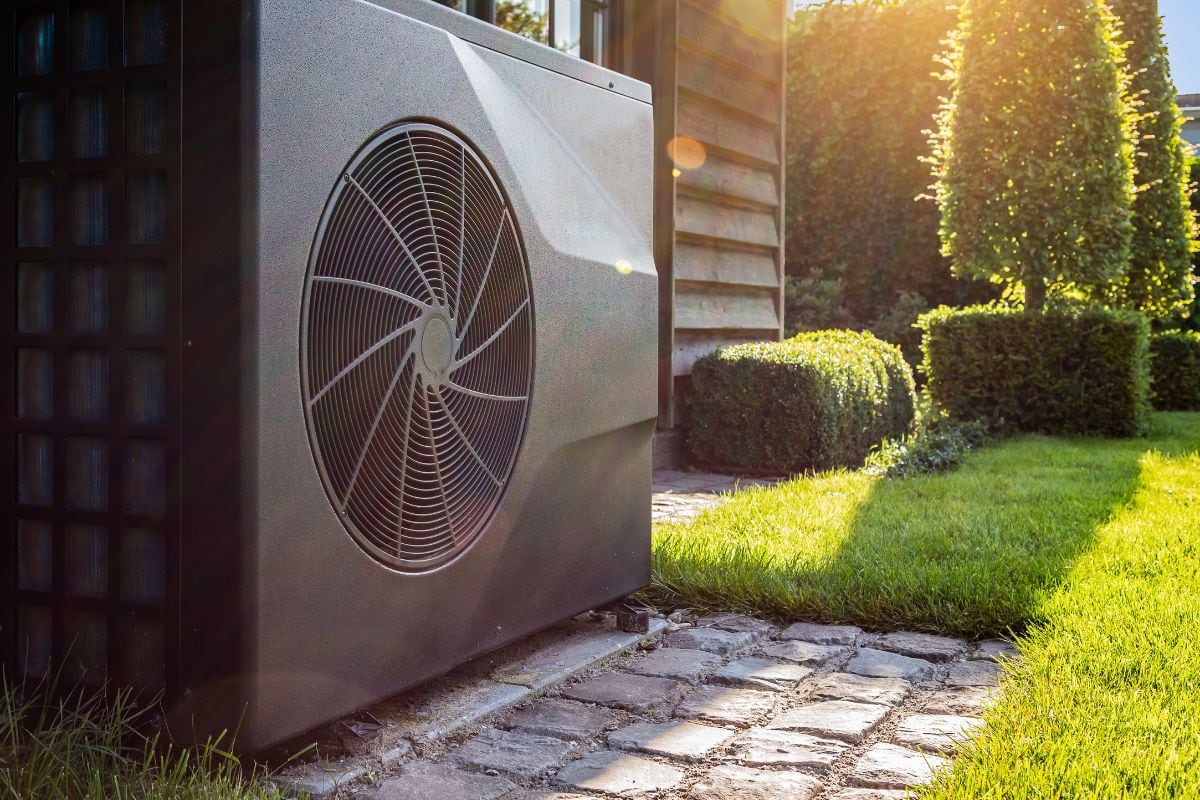A heat pump is essential in your home during the cold season. It helps keep you and your family warm when the cold weather outside starts making its way inside.
Now maybe you might wonder can a heat pump overheats. Wonder no more! We did plenty of research to help you get the answer you need. Read it now below!
Like anything else, a heat pump is also subject to any system breakdown, mainly overheating. It can overheat if the heat pump operation faces too much stress.
This article will talk about what causes your heat pump to overheat. We'll also address the heat pump's ideal temperature setting. We'll also share some tips on how to run your heat pump effectively and efficiently. Let's dive in!
![Heat pump standing near the house wall. - Can A Heat Pump Overheat? [What Causes This?]](https://hvacseer.com/wp-content/uploads/2022/08/Heat-pump-standing-near-the-house-wall.-Can-A-Heat-Pump-Overheat-What-Causes-This.png)
What Is A Heat Pump And How Does It Work?
A heat pump is a component of your cooling and heating system outside your house. It is a device that can extract energy out of the air to serve your home with your heating or cooling needs.
In addition, heat pumps act as a heat engine in reverse to keep the heat out of your house as they use electricity to move heat from a cold spot to a warm area.
The heat pumps function in two distinct operations, mainly for heating and cooling cycles.
![Can A Heat Pump Overheat [What Causes This]](https://hvacseer.com/wp-content/uploads/2022/08/Environmentally-friendly-heat-pump-located-in-the-back-yard.jpg)
The Heating Cycle
A heat pump draws heat from the outside air, warms it up, and then circulates it within your indoor spaces. The heating Cycle involves collaboration with its other vital part, such as:
- The evaporator also plays a crucial role in absorbing heat from the refrigeration system and turning it into gas.
- The refrigerant will pass through the compressor and increase gas pressure and temperature.
- The hot gas will flow across the condenser coils and transport them to your indoor room.
- After the gas passes the condenser coils, the system will condense it back into liquid form.
- At last, the liquid refrigerant will move back with the help of its valve to rerun the whole heating cycle.
The Cooling Cycle
As the names suggest, you can cool your house spaces using a heat pump's cooling cycle. The operation includes pulling the indoor heat and shifting it outside for air conditioning or inside for the refrigerator.
- The cold evaporator refrigerant absorbs the heat from the warmer area in your house to cool it down.
- After that, the compressor will come into play to raise its temperature.
- It releases this heat into the air outside as it flows through the condenser coils.
- As the process recycles, it needs to expand and reduce its pressure to below the room's thermal level.
The key to this process is to reverse the refrigerant circulation of the condenser and evaporator coils.
What Causes A Heat Pump To Overheat?
There are three most frequent causes of your heat pumps overheating:
- Refrigerant leakage
- Dirty condenser coils
- A jammed air filter
These problems make your heat pumps work harder to provide the airflow and warmth you require, which overheats the system.
Refrigerant Leakage
Your heat pump will operate even harder until it overheats if you run it with insufficient refrigerant due to a leak. As you might think, this issue will become a pain in your mind, particularly in the winter.
If the refrigerant level significantly drops in the winter, the heat pumps could freeze up easily. Resulting not only in your households suffering but also in your heat pump as well.
Dirty Condenser Coils
Over time, your heat pump condenser coil will certainly accumulate dirt. As the condenser coil releases heat, it can collect dust or debris.
Keeping away any hindrances from its intake will help reduce dirt build-up.

Moreover, leaving enough space at least 2 feet on all sides of your heat pumps is critical. Doing so will help prevent your heat pump from overheating, costly power bills, and reduce lifespan.
Jammed Air Filter
If the air filter becomes severely dirty, it will prevent enough air from passing through your heating and cooling system. As a result, your heat pump will run much harder to compensate for your heating demand.
Thus, it will eventually overheat, trips its breaker, or, worst, damage the whole heating system.
According to some experts, during periods of high consumption, you should clean or replace the heat pump's air filter every 30 days.
Check out these air filters on Amazon.
Can A Heat Pump Operate For Too Long?

There's no secret that a heat pump plays a significant role in serving adequate thermal levels in your home. However, this doesn't imply that you should neglect its ideal frequency of usage.
Generally, the advisable operational cycle of your heat pump is about 2-3 times each hour. You should be mindful of running your heat pump in each cycle for just 10-30 minutes.
Meanwhile, if the outdoor thermal level reaches 30-40 degrees, you can continuously operate your heat pump to keep your house warm.
At What Temperature Will A Heat Pump Become Ineffective?
The heat pump's effectiveness drastically decreases as the temperature falls below 40 degrees Fahrenheit. The heat pump operation is no longer an effective heating solution when the temperature drops below 25 degrees.
This is the time to switch on any backup heating you may have, like electric or gas heating.
Do Heat Pumps Use A Lot Of Electricity?
Every homeowner wonders whether or not their heat pump uses a lot of power. Aside from that, they want to know as well of how much energy they are going to save under normal usage conditions.

The energy consumption of heat pumps ranges from 802 to 5,102 watts, or around 0.802 to 5.102 kWh per hour. Modern heat pumps can reduce your heating energy consumption by about 50%.
Moreover, an air-source heat pump has proven to be more energy efficient than furnaces and baseboard heaters.
How Can I Make My Heat Pump More Efficient In The Winter?
A high-performance heat pump unit is the most effective heating system, even on the harshest winter days. The heat pump is the more energy-efficient option if you have a boiler or furnace in addition to a heat pump.
If you want to operate your heat pump more efficiently, kindly follow our simple tips below:
- Always set your heat pumps in a stable temperature mode even if you're not in your house or asleep.
- Set your heat pump in comfort mode regardless of your typical boiler or furnace setting.
- If you use a lot of heat sources in your home, it is best to rely only on your heat pump to boost power savings.
- Avoid setting your heat pump thermostat to AUTO mode; instead, use only a HEAT mode.
- Upon starting the heating or cooling operation, set the fan setting to AUTO FAN or the lowest set point.
- You must set airflow directly in place so it goes much farther; thus, it heats or cools your space faster.
- Ensure that the air filter is free from any dirt.
- Keep the outdoor unit free as well from any airflow hindrances.
NOTE: These simple tips will not only help you to increase your heat pump's energy efficiency. Additionally, it can also prolong the heat pump's lifespan.
How Long Does A Heat Pump Last?

Heat pumps perform similarly to air conditioners in terms of functionality. However, since they also offer heating and cooling features, they are often utilized for more extended periods each year.
Identifying its lifespan will differ depending on how you care for your heat pump, its types, and how you use them. Typically, the average lifespan of your heat pump unit is 15 years.
In contrast, you can expect your heat pump to wear down or fail much earlier if you reside near the coast.
See this inverter heat pump on Amazon.
To Wrap It All Up
Heat pumps can certainly overheat. Therefore maintaining their core components regularly is the only way to prevent such issues. It is our utmost pleasure to serve you all of this helpful information.
We know that you'll care for your heat pump unit much better before using our detailed information.
Before you leave, you can also read and learn from our related article below!


